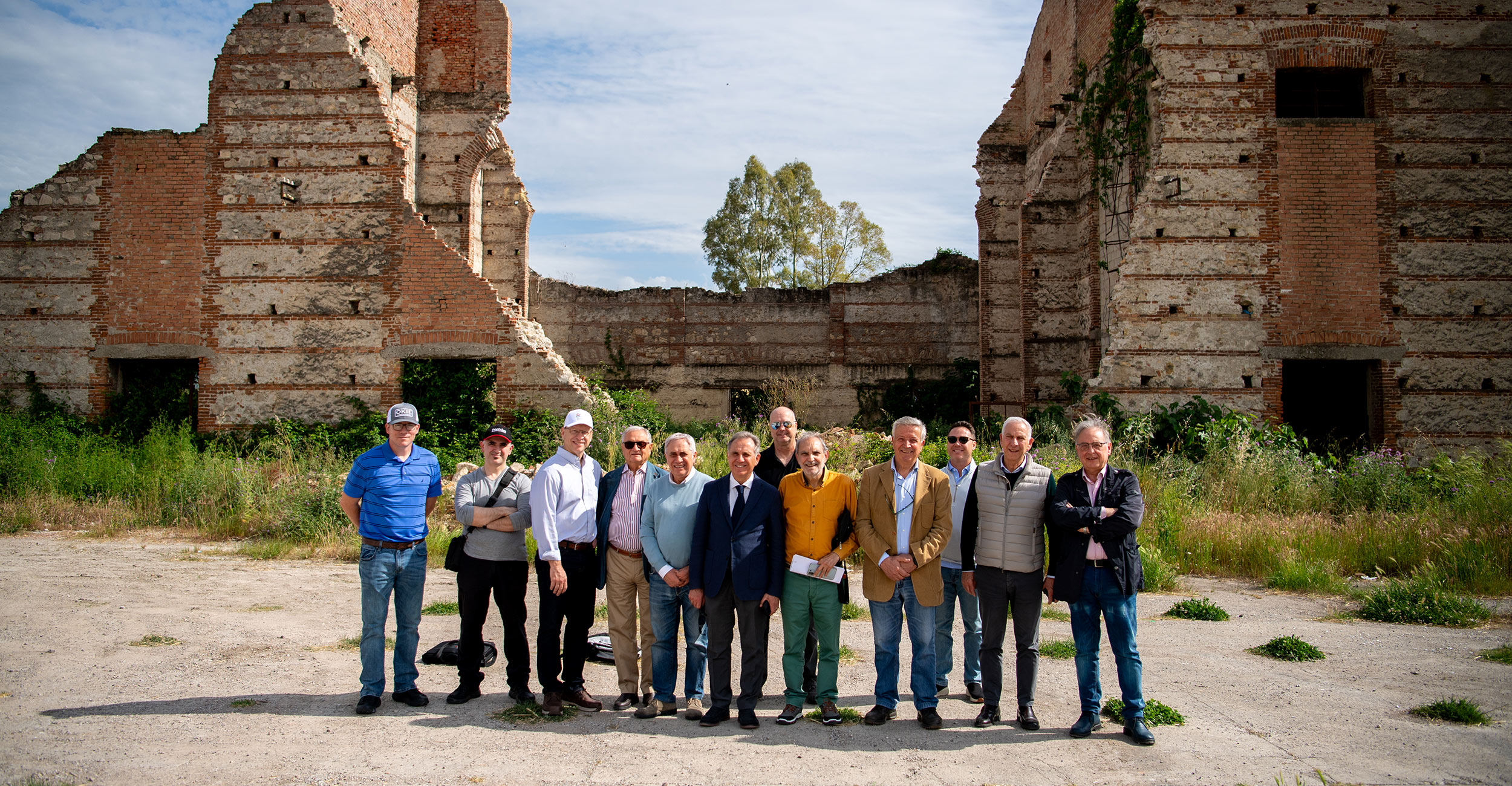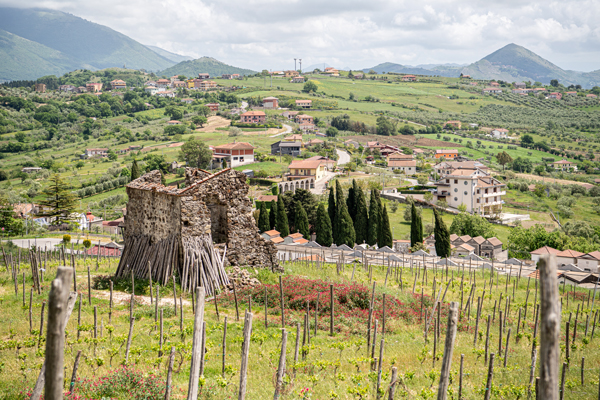
D’Andrea helps Oklahoma National Guard plan Thunderbird Trail to honor WWII vets
Wednesday, July 9, 2025
Media Contact: Sarah Griswold | Department of History | 405-744-5679 | sarah.griswold@okstate.edu
Eighty-two years ago, the Allied invasion of Italy began in Sicily. The operation preceded landings at Salerno in the Campania region, and with it the push to take Rome.
In May, leaders of the Oklahoma National Guard revisited that same terrain along with Oklahoma State University Department of History professor David D’Andrea. Stopping at sites in Campania where Oklahomans of the 45th Infantry Division valiantly took part in a vital campaign of World War II, the dignitaries paid homage to the lives lost and sacrifices made. This was one of the first steps in the Guards’ planned “Thunderbird Trail” project, for which D’Andrea is serving as historical adviser.
The 45th Infantry Division
The 45th Infantry Division was formed in 1923 and called “The Thunderbirds” for the thunderbird symbol that troops wore as a shoulder patch. Made up of National Guard units from across the American Southwest, the division's Oklahoma roots ran deep. When the threat of war led to federal call-up in 1940, Fort Sill hosted the Thunderbirds for training. Three years later they were making landfall in Sicily under a hail of shells. They would spend 511 days in combat in Europe, with the first year focused on mainland Italy.

Famous war correspondent Ernie Pyle called the Oklahomans of the 45th “hard to anger.”
“But once convinced of the wrong of something, brother, watch out,” Pyle said.
The New York Times’ Herbert Matthews wrote that, “Italy was the great test, and it is no secret now that the 45th Division broke all known records — American or otherwise — for continuous service in the front lines, fighting week after week under conditions at least as difficult as any that American soldiers have faced in our history.”
The “great test” that Italy represented is often overlooked due to historical interest in D-Day, D’Andrea explained, who has taught Italian history at OSU since 2000. But the significance of the Italian campaign, and the 45th Infantry Division’s role, deserve renewed focus, he said. Hence the importance and promise of The Thunderbird Trail.
The Thunderbird Trail
In a peaceful cemetery in Nettuno, Italy, more than 900 Thunderbirds lie buried. Historicizing their sacrifice and contribution is a main motivating factor of the Thunderbird Trail project.
“The mission is to preserve the Thunderbird legacy by ensuring future Oklahoma Guardsmen remain connected to their history,” said Staff Sgt. Anthony Jones, an Oklahoma National Guard public affairs noncommissioned officer who documented the site survey.
To that end, “we want to identify future sites to form the foundation of the Thunderbird Trail,” Jones said.

That is where D’Andrea comes in. In May, he traveled to Italy with Oklahoma National Guard leaders Lt. Col. Luke Kimbrel, Lt. Col. Neal Harvey, Chief Warrant Officer 5 Greg Kratochwill and retired Maj. Michael Mitchell (Chickasaw Nation). Their first key step was surveying the landscape, including key battlefields and historic towns. Stops included the Flyover Bridge near Anzio, where the 45th stopped a major German counterattack, as well as the site of a former Jewish internment camp in Campania.
“We’re building a pathway to record where the 45th passed,” D’Andrea said. “From Sicily to mainland Italy, Southern France, and all the way to Germany.”
D’Andrea helped coordinate important meetings between the Oklahoma National Guard delegation and local Italian leaders. Along with dignitaries from nearby Persano, the Oklahoma contingent also toured the Tobacco Factory, site of a major battle between the 45th and German forces, which will likely feature on the Thunderbird Trail.
Italian architects are consulting on the project’s first planned monument — an obelisk to be erected in September near Paestum in honor of Operation Avalanche, the code name for the Allied landings at Salerno. The monument will remind current Oklahoma National Guardsmen as well as the public of the courage of the 45th Infantry Division.
The scale of the sacrifice was not lost on the Oklahoma group, especially while in Italy. Lt. Col. Luke Kimbrel, commander of the 1st Battalion, 279th Infantry Regiment, 45th Infantry Brigade Combat Team, said that experiencing the battlefields where the Thunderbirds fought was humbling.
“Overwhelming is an understatement,” Kimbrel said. “Seeing it with your own eyes definitely puts it into perspective, and it sometimes makes that perspective even harder to comprehend.

“Standing here and looking at it and looking at maps from World War II and the graphics of where the units moved and the challenges they faced, aside from just fighting the Germans, with terrain and distance and how they were able to accomplish so much, is incredible.”
For D’Andrea, the new project has the potential to change how we remember World War II.
“The unpublished documents housed in the Oklahoma National Guard archives in Oklahoma City bring long-overdue attention to the Italian Campaign and the pivotal role played by the 45th Division and its unique Native American composition,” said D’Andrea, who has also done research into Pawnee Nation artist Brummett Echohawk who landed with the Thunderbird Division at Sicily. “This information opens new areas of historical research and changes the history, both academic and popular, of the Italian Campaign in World War II.”
The Thunderbird Trail is a project of the Oklahoma National Guard, with historical consultation provided by Dr. David D’Andrea of the Oklahoma State University Department of History. For more information about the project, contact Dr. David D'Andrea at david.dandrea@okstate.edu and visit News from the Oklahoma National Guard.
